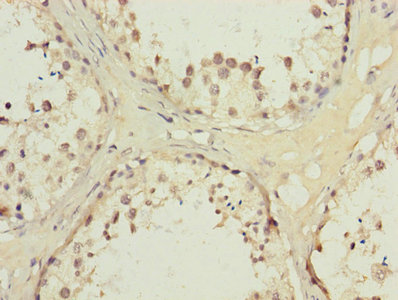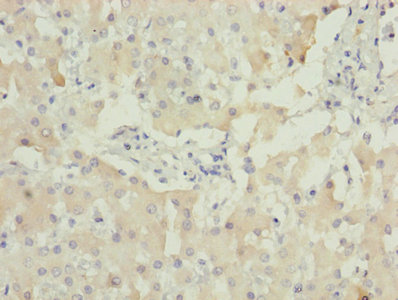Full Product Name
Rabbit anti-Homo sapiens (Human) AKR1D1 Polyclonal antibody
Alternative Names
3-oxo-5-beta-steroid 4-dehydrogenase antibody; 3o5bred antibody; AK1D1_HUMAN antibody; AKR1D1 antibody; aldo keto reductase family 1 member D1 (delta 4 3 ketosteroid 5 beta reductase) antibody; Aldo keto reductase family 1 member D1 antibody; Aldo-keto reductase family 1 member D1 antibody; CBAS2 antibody; Delta(4) 3 ketosteroid 5 beta reductase antibody; Delta(4) 3 oxosteroid 5 beta reductase antibody; Delta(4)-3-ketosteroid 5-beta-reductase antibody; Delta(4)-3-oxosteroid 5-beta-reductase antibody; SRD5B1 antibody; steroid 5 beta reductase beta polypeptide 1 (3 oxo 5 beta steroid delta 4 dehydrogenase beta 1) antibody; steroid 5 beta reductase antibody
Immunogen
Recombinant Human 3-oxo-5-beta-steroid 4-dehydrogenase protein (1-200AA)
Immunogen Species
Homo sapiens (Human)
Conjugate
Non-conjugated
The AKR1D1 Antibody (Product code: CSB-PA001548LA01HU) is Non-conjugated. For AKR1D1 Antibody with conjugates, please check the following table.
Available Conjugates
| Conjugate |
Product Code |
Product Name |
Application |
| HRP |
CSB-PA001548LB01HU |
AKR1D1 Antibody, HRP conjugated |
ELISA |
| FITC |
CSB-PA001548LC01HU |
AKR1D1 Antibody, FITC conjugated |
|
| Biotin |
CSB-PA001548LD01HU |
AKR1D1 Antibody, Biotin conjugated |
ELISA |
Purification Method
>95%, Protein G purified
Concentration
It differs from different batches. Please contact us to confirm it.
Buffer
Preservative: 0.03% Proclin 300
Constituents: 50% Glycerol, 0.01M PBS, PH 7.4
Tested Applications
ELISA, IHC
Recommended Dilution
| Application |
Recommended Dilution |
| IHC |
1:20-1:200 |
Storage
Upon receipt, store at -20°C or -80°C. Avoid repeated freeze.
Lead Time
Basically, we can dispatch the products out in 1-3 working days after receiving your orders. Delivery time maybe differs from different purchasing way or location, please kindly consult your local distributors for specific delivery time.
Usage
For Research Use Only. Not for use in diagnostic or therapeutic procedures.








